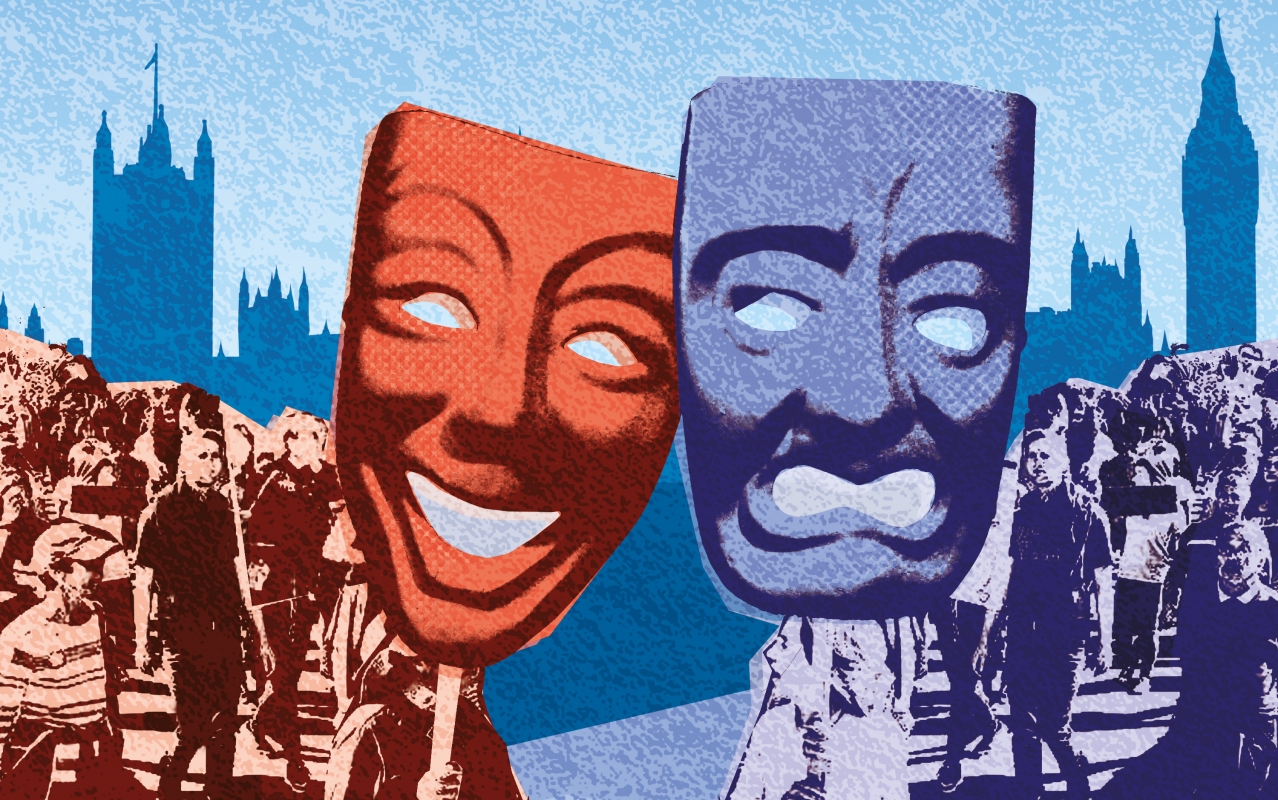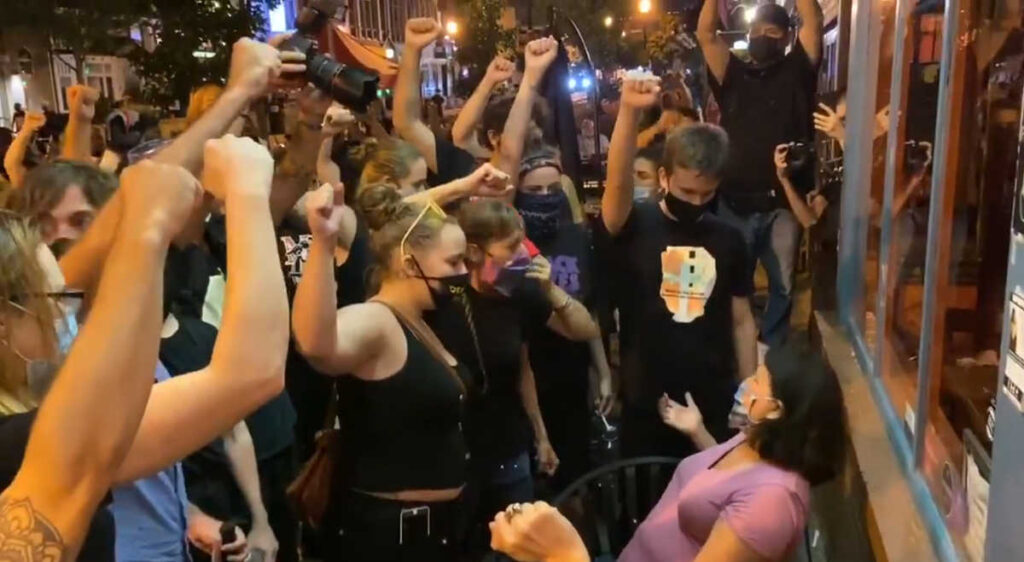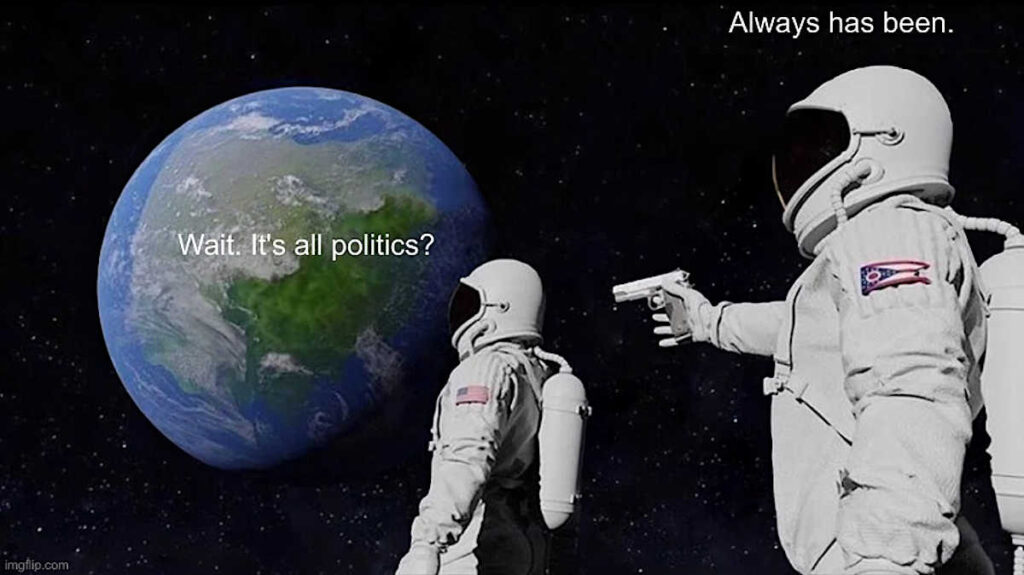Editor’s Note: We had a great response to our earlier article from Moira Greyland. She recently posted this new article on Facebook and had such a good response that it was recommended that she send it to us for publication to a wider audience. We agree that it is worth your time.
I recently saw a discussion of Star Trek Discovery, where a fan of the show was railing against Trump supporters because we were supposedly crying about diversity, and how we supposedly hate women, black people, and gays—even if we ARE women, or black, or gay. That discussion inadvertently made the sharp difference between the Left and the Right as it relates to media all too clear.
Let’s unpack that, shall we?
Many years ago, during Star Trek TOS, there was a beautiful black communications officer named Uhura, played by gorgeous singer Nichelle Nichols. She was so overwhelmingly popular that she remained a fan favorite, even a sex symbol, into her eighties.
More recently, on Star Trek: Deep Space Nine, there was a heroic, muscular black hero named Captain Benjamin Sisko. He remains a fan favorite, both because he has a voice that would melt butter and charm the birds out of the trees, and because he has a compelling backstory. In the first episode, he loses his wife during the attack at Wolf 359, for which he rightly blames the unwillingly Borg’ed Captain Jean-Luc Picard. He is a kind, enthralling single father, who raises a healthy, brilliant son.
Spock should be viewed as the original diverse character, because not only is he a literal alien, his emotional makeup is very jarring to some of his costars, notably McCoy, with whom he has a fractious relationship, despite grudging mutual respect.
Spock is likewise sympathetic, partly because his emotionally cold calm can be recognized as a portion of normal male psychology, even as it is taken to a polarized extreme.
Worf is one of the most beloved characters in Star Trek: TNG. He is black, of course, and very handsome, despite the facial prosthetics. He is also emotionally vulnerable, appealing and kind, despite being a warrior. He is the kind of warrior who is part hard and protective, and part cuddly teddy bear. He is relatable both to men and women, because he fights for justice, but feels pain and loss, and lives with his emotions closer to the surface than many other characters.
We conservatives are also reviled for “not liking female characters” but nothing could be further from the truth. Janeway, who was the captain of Star Trek Voyager, was both strong and heroic, yet motherly and gentle, while keeping her place on top of the crew, even putting any hope of a love life on a back burner for the sake of her crew.
Similarly, Seven of Nine, who is often dismissed for her appeal to the “male gaze,” as though that was a bad thing, was also a singularly sympathetic character. She obviously suffered from severe PTSD, which meant she was a character I related to and found comfort in seeing.
Watching her interact with Janeway was like watching a feral child in the hands of an adoptive parent, and to see her calm down and transform into a capable, caring crewmember and asset gave hope to the rest of us PTSD sufferers that there was an “after” to the nightmare.
We are supposed to object to gay characters, but what of the egg-laying first officer on the Orville? He and his male partner are both sympathetic because they are so realistic in terms of the issues between any couple. They fight, and the nearly intolerable stresses on their bond around their differences in child-rearing cause unfortunate consequences for both. The first officer retreats into porn addiction, and his mate becomes ever needier and more antagonistic.
This brings us to the actual problems of a series like Discovery. The issues are not about the race of the character, nor the gender, or even the sexual orientation.
The real issue is that the diversity substitutes for a plot. Sonequa Martin-Greene was a badass zombie killer in The Walking Dead, and her coldness was a feature, not a bug. But this coldness does not translate to a caring captain of a ship. It is hard to identify with a woman who is only a woman because of her plumbing.
The only discernibly female trait of Michael Burnham is her faintly female figure. Otherwise, she is like a bad imitation of a man. She is hostile, cold, inclined to violence, even committing murder. She does not have the self-discipline that a Vulcan would be expected to have.
While aping the worst traits of a man, in the form of poorly handled emotions and violent acting-out, she lacks the steadiness of a man, the ability to forget anger and return to normal, the ability to think things through in an unemotional way, and even the male comfort in a hierarchy.
Being neither discernibly male nor female, Michael Burnham ends up being unrelatable. The reason you won’t find Michael Burnham dolls on the shelves at Wal-Mart is that neither boys nor girls want to grow up to be anything like her. Girls and boys alike might describe her as a “mean lady” and her vaunted skill at everything does not compensate in any way for the unbridled “meh” of her personality.
You all may remember Catwoman as played by the lovely Halle Berry, and long ago by the siren Eartha Kitt, both black, both sinuously beautiful. It would have been so easy to cast another lovely black actress as Batwoman in the recent series, but no! Too male-gaze-y.
So yet again, we have a character that neither males nor females would admire. She openly disses men, even disses Batman, casting herself as an improvement with no evidence she can be one tenth the hero.
And she is no hero.
She steals Batman’s stuff, sets about questing only on quests that please her, has lots of sex with a few women, and doffs her mask to tell the world she is gay.
What can we relate to? Her lack of self-discipline? Her hostility towards her predecessor? Her failures in any kind of altruism, not to mention her failure to be any kind of hero?
The trouble with all these woke characters is not that they are black, female, or gay. The trouble with all these woke characters is that they are not characters, but checkboxes. They are not relatable. Instead of being “everyman,” they are truly nobodies.
They do not overcome. They do not strive. They do not have admirable human qualities. The ability to perform athletic feats is insignificant compared to the ability to love their fellow man, and to sacrifice and work hard to protect and care for the innocent.
Who wants to be a non-heroic superhero who is all about the sex and doesn’t give a rat’s behind about the people she is supposed to protect?
Who wants to be a captain who is neither male nor female and who cannot control her temper, showing no trace of the qualifications which would make a good captain? Where is the leadership? Where is the likability?
The writers in Hollywood would do well to learn that what makes a character relatable are the features which remind us of the best in ourselves. Those characteristics are common to all successful characters, whether black, white, or green.
The farthest exponent illustrating this point can be found in Veggie Tales. Larry the Cucumber is not black, not white, not even human, but definitely sympathetic. How can we conservatives be motivated by color when we find a green cucumber to be a better character than any number of woke wonders?
Think of it this way: if Michael Burnham was played by a white man, he would be just as insufferable as he is now. If Batwoman was played by a trans man, he or she would be just as self-indulgent and boring.
It is what is in a character’s head that counts, not what is on his head—or in his bed!









